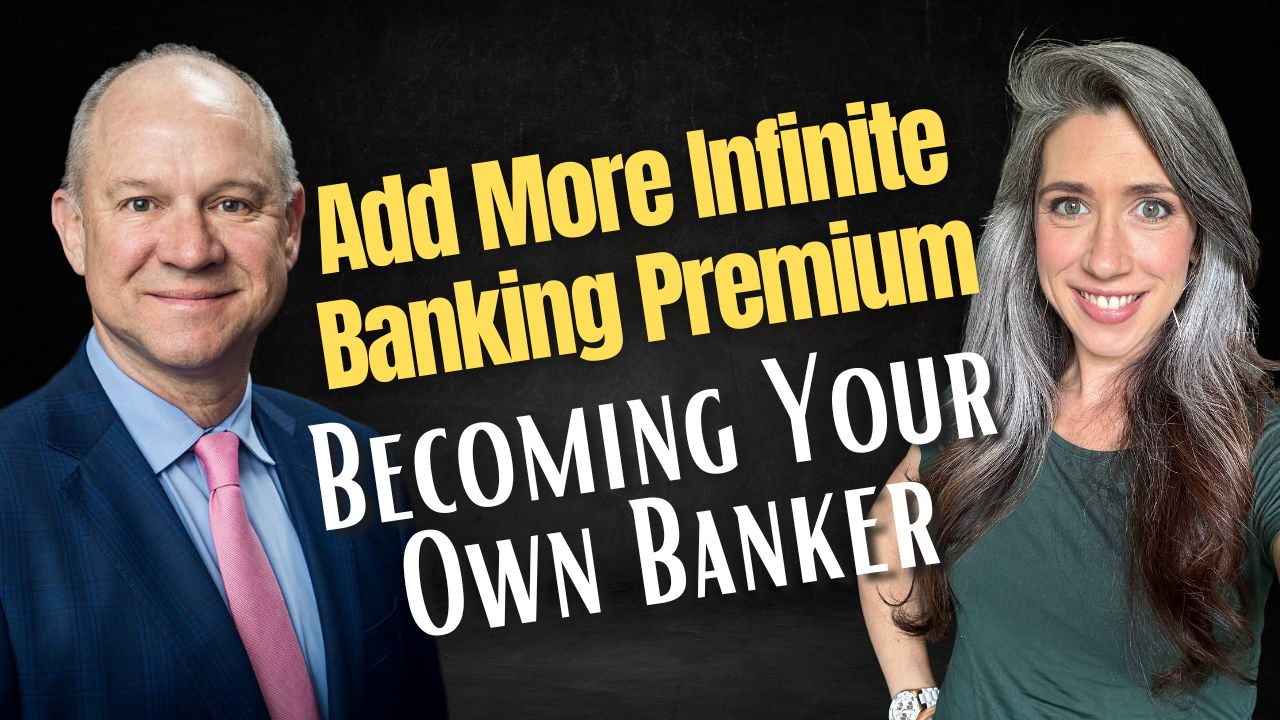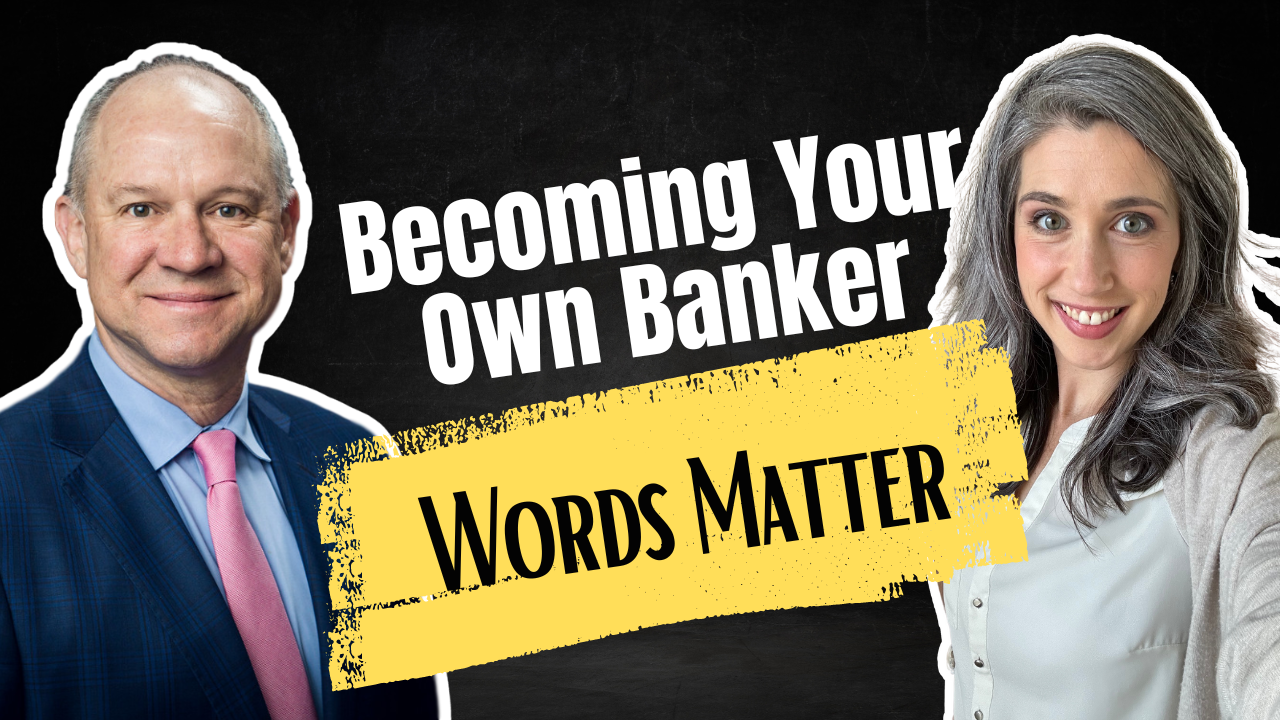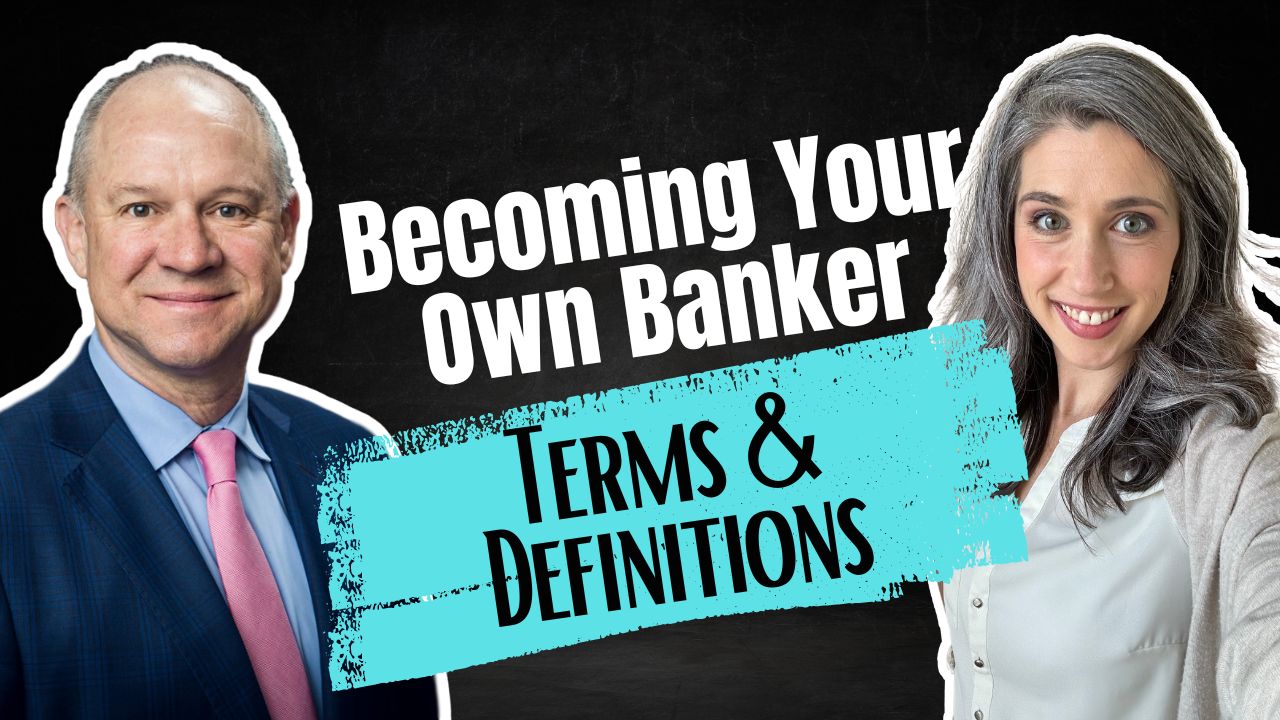
Becoming Your Own Banker, Part 15: How to Pay More Infinite Banking Premiums
Unlock the secrets to infinite banking in this power-packed episode. We guide you through the intricate steps of using whole life insurance as a tool to gain financial freedom, inspired by Nelson Nash’s groundbreaking book, “Becoming Your Own Banker”. Learn the advantages and drawbacks of this system, and pick up practical tips on finding more money to capitalize a policy and pay more premiums. This episode is designed not just for the financially savvy, but for anyone who dreams of a more secure financial future.
One of the greatest barriers to achieving financial success is a lack of education and understanding. Let’s break down these walls together as we discuss the stigmas and misconceptions surrounding the Infinite Banking Concept. We delve into Nelson Nash Institute’s ambitious mission to broaden awareness and comprehension of infinite banking. Relying on the right people and the right knowledge will guide you towards a more solid financial standing.
Imagine being able to finance multiple items like cars or even a mortgage through infinite banking. In this episode, we shed light on the infinite possibilities of using your income and assets to fund more policies. We explain how whole life insurance can be your stepping stone to accumulate wealth and how you can make your financial dreams come true. We also stress the importance of consulting with experienced advisors to get the most value out of your policies. So come on board and take control of your financial future with us. It’s time to break free from financial constraints and build a plan tailored to your unique needs.
Podcast: Play in new window | Download (Duration: 1:05:21 — 74.8MB)
Subscribe: Apple Podcasts | Spotify | Android | Pandora | RSS | More
Table of Contents
Your Income Should Match Your Premium
This is what Nelson Nash believes is the ultimate goal for someone practicing IBC. And yet, no one starts out at this level—it’s not possible. You’ve got to start where you’re able and slowly build your way up, increasing your premiums by increasing your portfolio of insurance policies over time.
The first reason you can’t get all of your income running through a policy is because the insurance companies place factors on your income that limit how much insurance you can buy. This is because your death benefit acts as income replacement, and is therefore a factor of your income. If you’re aged 18-35, you can get a death benefit of 35 times your income. To give you a snapshot, from age 46-50, you can get 20 times your income, and from 66 and up you can get 5 times your income.
This factor decreases because your number of remaining working years (at least by typical standards) is decreasing. And since insurance covers your income, the insurance companies are only looking at how much income you would earn in these assumed working years. All of this is a part of the Human Life Value calculation, which is essentially your economic replacement value.
How Policy Design Affects Premium
The way your agent designs a life insurance policy will also impact your premium. Of course, some factors you cannot change—your age, health, and other income will contribute to the amount of premium you pay relative to your death benefit. However, an agent can design your policy to be structured with a blend of base premium and PUAs that can allow you to contribute even more premium to your policy.
[27:35] “One reason for why you’d want to put more premium dollars into a life insurance policy is if you realize that if I put a hundred dollars a month into a policy and that will earn me dividends and interest, and when those dividends are paid back into the policy I will earn dividends on those dividends. That’s going to allow me to have that compound growth over time that is going to be a tremendous wealth builder over decades and over generations. And I want that kind of generational wealth-building tool. The only limitation to that growth is how much you put in.”
MEC Limits
The IRS has also set limits on how much premium you can put into a policy, relative to your death benefit. If you exceed those limits, your policy can no longer be considered insurance by IRS standards. Instead, it becomes a modified endowment contract, and you lose many of the tax advantages.
Generally, the insurance company won’t let your policy become a MEC unless you want to. You’ll receive notice if you somehow contribute too much money into the policy, and will have options to ensure your policy doesn’t become a MEC.
The Value of Long-Term Thinking to Pay More Premiums
If you’re using IBC to create a pool of capital for long-term financing, you have to be thinking long-term. The more you train your mind to think in these long-term choices, the more adept you will become. Sometimes that means patiently paying premiums until you have the capital to finance. Other times, that means learning to cultivate a save-first mentality.
If you want to use your life insurance to fund major purchases in your life and to increase your income through investing, you’ve got to be willing to delay gratification and work hard. You’ve also got to be willing to increase your savings capacity over time, which means increasing your premiums (by way of opening a new policy, for example).
If you don’t already have these good money habits and a long-term mindset, it might not be the right time to start an IBC policy. You might actually be better off spending time to create good habits, that way you can do right by your policy. This isn’t something you dip your toe into, it’s a lifetime commitment.
[59:19] “It’s a process to start from where you are to shifting to putting more into savings, increasing your percentage of savings (if you’re not saving already), and getting to a position where you’re able to put that savings over into a more effective tool to grow that better. And then, you can reduce some of those costs, like auto warranties for new cars, and premium dollars for your liability insurance.”
Book A Strategy Call
Do you want to coordinate your finances so that everything works together to improve your life today, accelerate time and money freedom, and leave the greatest legacy? We can help! Book an Introductory Call with our team today https://themoneyadvantage.com/calendar/, and find out how Privatized Banking, alternative investments, or cash flow strategies can help you accomplish your goals better and faster. That being said, if you want to find out more about how Privatized Banking gives you the most safety, liquidity, and growth… plus boosts your investment returns, and guarantees a legacy, go to https://privatizedbankingsecrets.com/freeguide to learn more.
Becoming Your Own Banker, Part 29: Words Matter
Ever felt like financial jargon was designed to confuse rather than clarify? Join us as we navigate the labyrinth of financial terminology, particularly within the infinite banking sphere. It’s not just about learning by rote; it’s about cementing a rock-solid financial strategy based on clear, precise language. By dissecting common misconceptions, we aim to transform…
Read MoreBecoming Your Own Banker, Part 28: Infinite Banking Definitions
Have you ever felt like you’re on a financial hamster wheel, constantly spinning but never gaining traction? Join us as we unpack the epilogue and glossary of Nelson Nash’s “Becoming Your Own Banker.” It’s a journey through the intricate philosophy of IBC, as we cover Infinite Banking definitions that shows how effective money management can…
Read More


